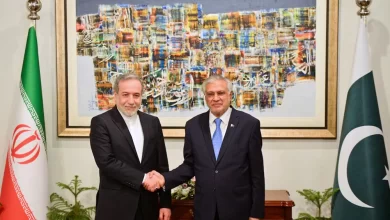Perspectives | Kazakhstan working to lift Cold War-era trade restrictions

The Biden Administration and Kazakhstan are both eager to boost mutual trade and investment. But an antiquated vestige of the Cold War known as the Jackson-Vanik amendment remains an impediment to stronger US-Kazakh economic ties.
Kazakhstan is a keen supporter of a US initiative launched earlier this year known as the B5+1 process, under which Central Asian states strive to lower trade barriers to attract higher levels of Western investment. At the same time, Kazakh officials complain that the ability to trade with the United States is clouded by Kazakhstan’s Jackson-Vanik status.
The amendment was adopted in a bygone era to address bygone geopolitical issues, designed to give the United States leverage in its dealings with the formerly communist countries of Central Europe and Eurasia by conditioning trade relations on a willingness to permit the freedom of movement and emigration. In passing the measure in 1974, congress gave the president the authority to waive Jackson-Vanik restrictions for any given country on a yearly basis. Removing a country permanently from the Jackson-Vanik list requires an act of Congress.
Since the collapse of communism, Congress has scrapped Jackson-Vanik restrictions for most formerly communist nations, granting them permanent normal trade relations status (PNTR). Five formerly Soviet republics – Azerbaijan, Kazakhstan, Tajikistan Turkmenistan and Uzbekistan – remain subject to Jackson-Vanik and require annual reviews to be exempted from the amendment’s provisions. Today, Jackson-Vanik restrictions are imposed only on four states: Belarus, Cuba, North Korea and Russia.
The need for yearly certification doesn’t sit well with Kazakhstan, whose diplomats in Washington are working assiduously to secure PNTR status.
“Jackson-Vanik is a major focus of Kazakhstan’s engagement with Congress,” a background report published by the Congressional Research Service in August stated. “The Biden Administration supports lifting Jackson-Vanik for Kazakhstan, arguing that doing so would signal US commitment to economic engagement at a time when the United States is seeking to help Kazakhstan diversify away from Russia [and China].”
“In light of the issue’s significance for the government of Kazakhstan, …repeal would potentially have an outsized positive impact on overall bilateral relations,” the CRS report added.
At an investment forum held this summer in Washington, Kazakhstan’s ambassador to the United States, Yerzhan Ashikbayev, characterized Astana’s removal from the Jackson-Vanik list as “low-hanging fruit.”
For some reason, though, congressional representatives have left the matter untouched. Multiple bills introduced in previous years have never made it out of committee. A similar bill introduced in the current Congress, H.R. 3611, appears likely to endure the same fate, even though it has gained 43 co-sponsors, including Republican and Democratic congressional representatives.
Daniel Witt, president of the Washington, DC.-based International Tax and Investment Center, believes that denying Kazakhstan PNTR status is detrimental to US strategic interests in Central Asia. “The most important steps that the US government can take to improve the investment climate in Kazakhstan are the lifting of various restrictions on investments, such as the long-outdated Jackson-Vanik amendment,” Witt said in July during a roundtable on regional trade developments.



